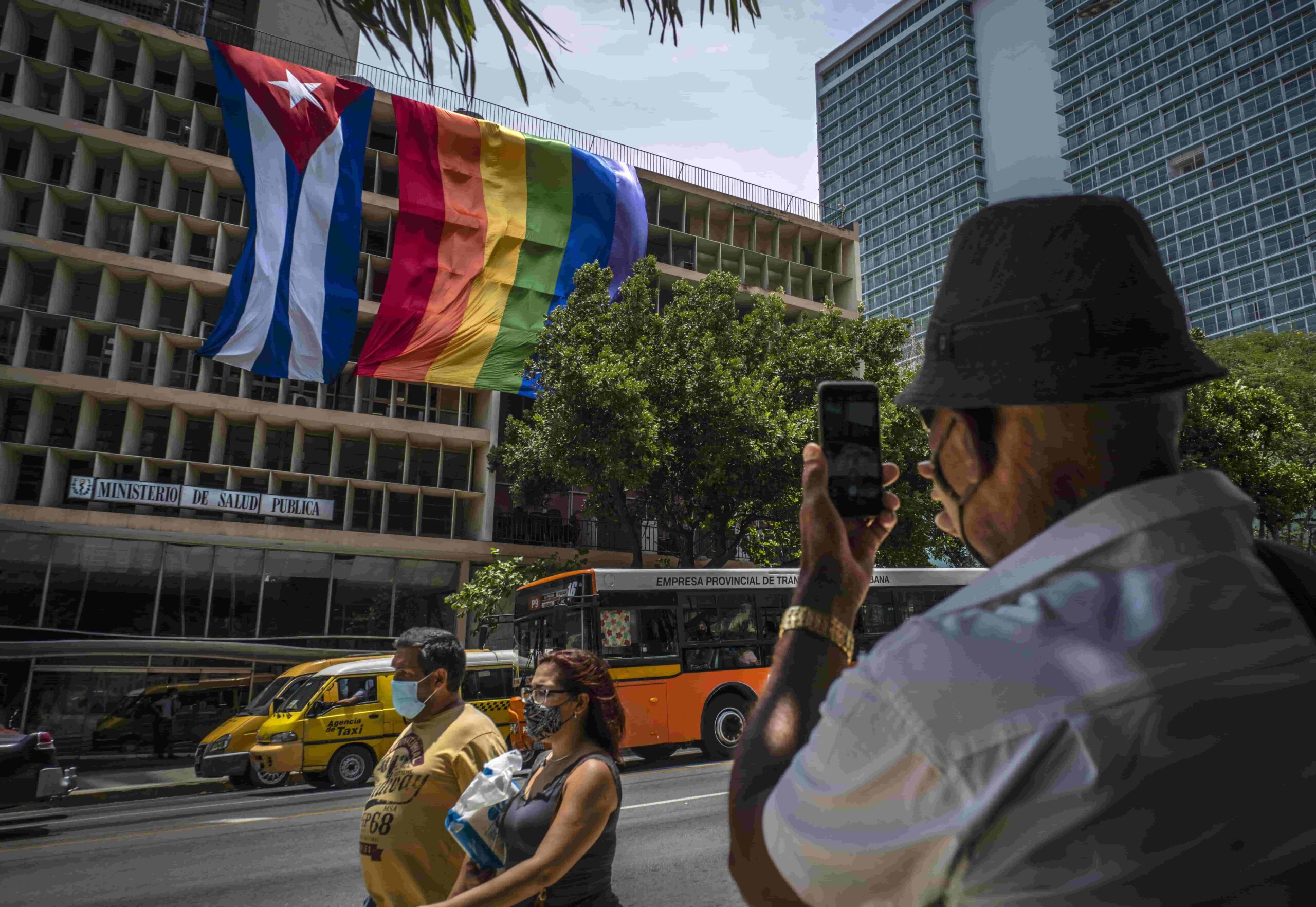Cuba is set to hold a national referendum to decide whether same-sex couples should have the right to marry.
On July 22, Cuba’s National Assembly approved long-awaited updates to its Family Code—a piece of legislation that dates back to 1975—that would strengthen LGBTQ+ protections in the island country. According to Reuters, more than 60 percent of participants supported the amendments in a series of community debates held earlier this year. The changes to the Family Code which include the rights to civil unions, full marriage equality and same-sex adoption.
The updated Family Code would also legalize surrogacy and allow partners of all genders to enter prenuptial agreements prior to marrying.
But in order to become law, the amendments must meet with public approval through a nationwide vote, which is scheduled for September 25. At least 50 percent of Cuban citizens will need to support the changes at the ballot box for the new Family Code to be ratified. Members of the Cuban diaspora will be permitted to vote from abroad, according to The Washington Post.
Supporters of LGBTQ+ equality expressed excitement at the news that Cuba is one small step closer to legalizing same-sex marriage. In a July 22 tweet, Cuban justice minister Oscar Silvera Martínez referred to the parliamentary vote in favour of the inclusive Family Code as a “historic day.”
“It is the result of a lot of work and, especially, the contribution of our people,” he tweeted.
Religious groups and churches are against the new changes to the Family Code, and the vocal opposition could be a major impediment in a country where about 60 percent of the population identify as Catholic. Back in 2019, similar objection from bishops and other faith leaders reportedly prevented same-sex marriage from being included in an updated version of the Constitution of Cuba—which was originally adopted in 1976, just months before former President Fidel Castro came to power.
“What has been happening is sad because it is going to bring confrontation,” a Methodist pastor said of the same-sex marriage vote in comments to the news outlet Voice of America. “It goes against what has been taught for many generations of years throughout the world about the true traditional marriage that is between a man and a woman.”
Historically, religious groups haven’t been the only obstacle to LGBTQ+ equality in Cuba. The country has been under Communist rule since the 1960s, when Castro’s authoritarian regime sent gay men to forced labour camps for “re-education.” From 1986 to around 1997, Cuba was the only nation in the world to force people living with HIV into quarantine. Fourteen sanitariums, which critics likened to prisons, held around 10,000 people during the height of the AIDS crisis.
Castro apologized for his government’s role in persecuting LGBTQ+ people in 2010, six years before his death, and the country has since made some strides toward equality. In 2010, Cuba’s National Center for Sex Education, known as CENESEX, began offering free gender-affirming surgery to trans patients. Discrimination on the basis of LGBTQ+ identity in housing and employment has been banned since 2013.
Earlier this year, Cuba became the first Latin American or Spanish-speaking country to celebrate LGBTQ+ History Month. According to Reuters, around 13 nations across the globe have a dedicated month to highlight the legacy and accomplishments of the LGBTQ+ community.
But critics say Cuba’s progressive measures toward LGBTQ+ equality serves to “pinkwash” its poor human rights record. Earlier this year, the U.S. State Department called out the government’s “ongoing harsh sentencing of political protesters” and called on political leaders to allow greater freedom of expression. The statement cited 550 cases in which protesters had been sentenced to forced labour, imprisonment or other draconian punishments, and detentions averaged more than seven years.
Cuba’s allegedly repressive tendencies have also reportedly bled into its treatment of the LGBTQ+ community. In 2019, more than 100 people were arrested for attempting to hold an unauthorized Pride march in Havana, where they were subjected to violence by plainclothes police officers. The event had been planned in defiance of the national government after authorities cancelled it without explanation.
Should Cuba legalize marriage equality later this year, it will be the second country in Central America or the Caribbean to do so after Costa Rica in 2020 and the 33rd globally to recognize full marriage equality. This year, several countries have moved to offer greater relationship recognition to same-sex couples, including Chile, Slovenia and Switzerland.
Andorra, a small country of 77,000 people, situated between Spain and France, extended civil marriage rights to same-sex couples last week, although the decision stopped short of full marriage equality.


 Why you can trust Xtra
Why you can trust Xtra


